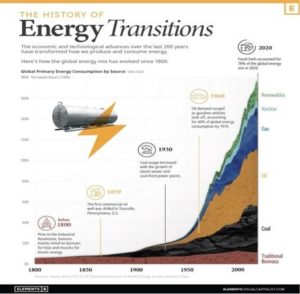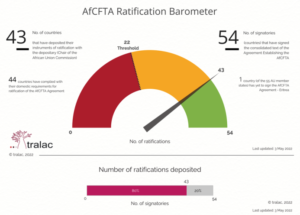The misconception that money and natural resources are wealth is rampant among intellectuals and other educated individuals, and even economists. Prevailing monetary and economic policy choices reflect this entrenched misconception.
Consider the fact that since the 2008 Great Recession, leading central banks have injected trillions of dollars, euros, yens, etc., into economies and have monetized record-setting levels of government debt under the assumption that more money and more (deficit) spending will solve problems. Still, economies continue to falter.
Likewise, most countries in the developing world are endowed with immense quantities of valuable natural resources. Yet, despite such abundance, most people in these regions live in severe poverty relative to,
Articles by Manuel Tacanho
If Mauritius is a Tax H(e)aven, Other African Countries Must be Tax Hells
August 18, 2022It is common for commentator to point to corruption, incompetence, malicious Western meddling, and other factors as the source of Africa’s continued economic woes. One seldom hears so-called experts point to taxes as a major impediment to economic development. Even “development economists” do not repudiate Africa’s paradoxically onerous tax regimes.
Worse still, powerful (and harmful) neocolonialist institutions, such as the International Monetary Fund (IMF), tend to “advise” African governments to expand tax schedules and to increase tax rates further as government debt levels grow dangerously high across Africa. Refreshingly, Mauritius has taken a different approach by implementing a relatively low and attractive tax code. Unsurprisingly, Mauritius has
Africa Needs Conventional Fuels, Not Windmills and Solar Panels
August 14, 2022The energy and climate goals that Western governments, the United Nations, and other organizations are pushing on Africa constitute a crippling blow to its economies. As the least developed region, Africa should unequivocally prioritize economic development. One would think that amid energy poverty in Africa, Western governments and “development” institutions would prioritize energy security for African countries over energy transition.
African countries must have reliable, abundant, and cheap energy (e.g., fossil fuels) to accelerate economic development. Fossil fuels power economies and people’s lives. To deny these countries the possibility of developing with fossil fuels by imposing climate goals that the Western world itself fails to achieve is hypocritical.
Nine Ways Debt and Deficit Spending Severely Harm African Societies
July 11, 2022Systemic debt and deficit spending are intrinsic features of today’s economic system. Unlike classical economics, where markets play the leading role and governments the supporting one, the existing economic model, driven by Keynesian theory, has inverted the roles. Keynesian economics, like other statist economic theories, is distrustful of (free) markets, thus making the state, an inherently bureaucratic and coercive institution, the captain of economic and social life.
African countries emerged as “independent” nation-states in this context of state-centered economic thinking and a debt-based fiat monetary system. Consequently, African politicians chose state-led economic development (and maintain this approach to date). However, after fifty years of that
To Succeed, the AfCFTA Must Be about Actual Free Trade, Not Government-Managed “Free Trade”
May 30, 2022The African Continental Free Trade Area (AfCFTA) is the world’s largest free trade area by the number of countries. It is the most ambitious and, given demographic trends, the most promising free trade project on earth. The AfCFTA matters very much to Africa’s economies separately and to the continent’s collaborative and integrated economic development. If successful, it also carries significant implications for the global economy. As such, the AfCFTA matters. Not just for Africans but for everyone.
The AfCFTA was established in 2018, and trading under the agreement officially started on January 1, 2021. I say officially because, oddly, no trade has taken place under the agreement to date. Over a year later.
Although with governments almost everything takes





